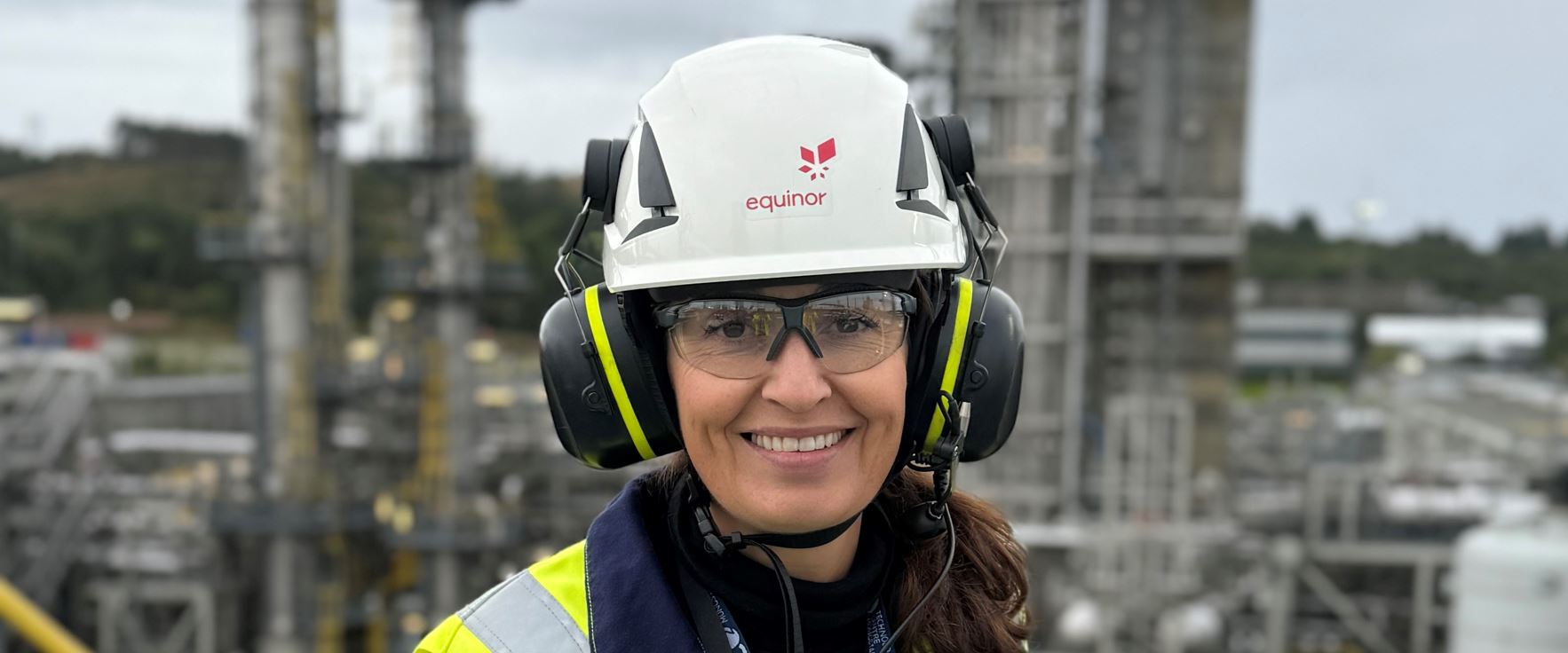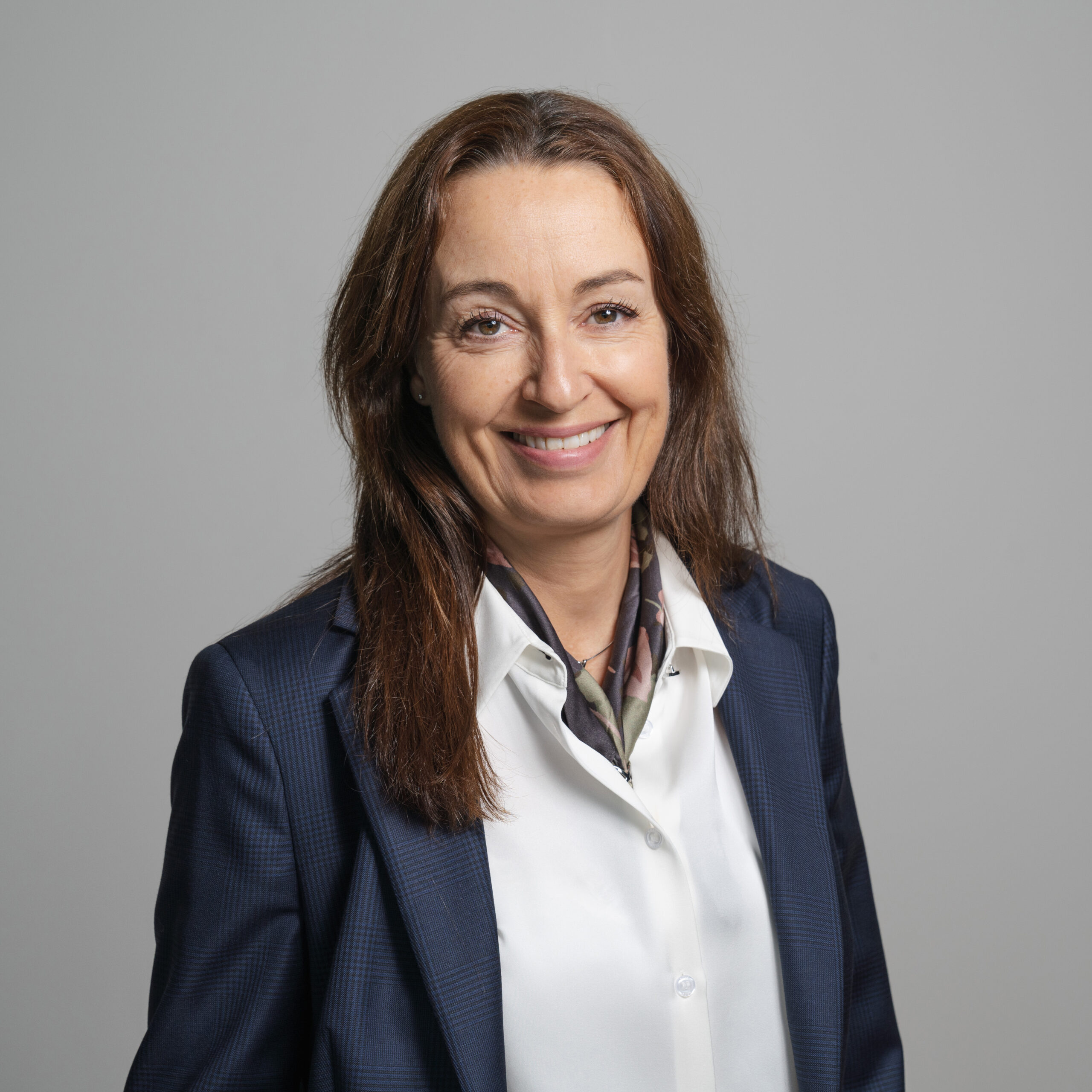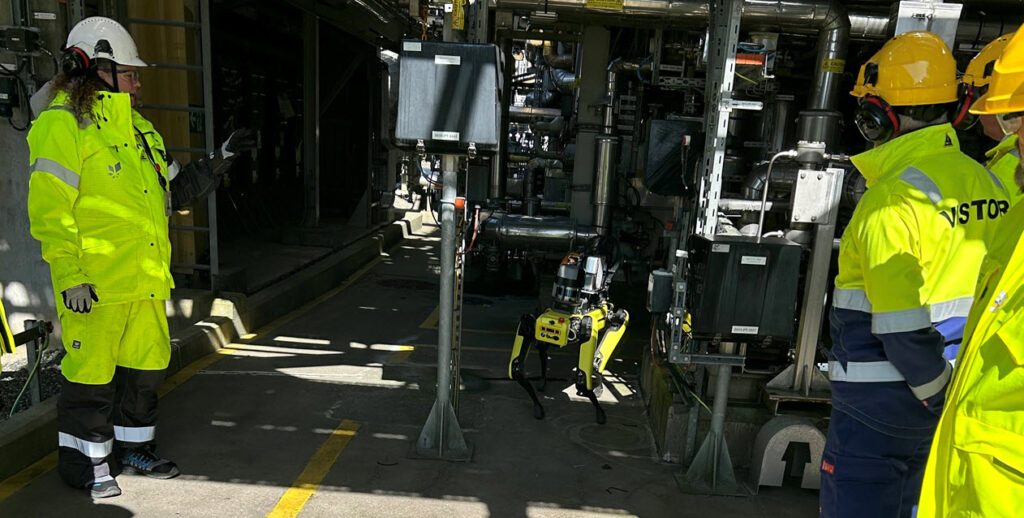
23.08.2024
”I have my heart in Mongstad”
Merete Lunde was born and raised in Drammen but has spent her entire adult life in Western Norway. “My heart is in Mongstad,” says the operations manager at TCM with a smile.
Merete has only had the job at TCM since February this year. However, since she started as an engineer at Statoil (now Equinor) in 1997, her work journey has almost exclusively followed County Road 57 to Mongstad. “That’s how it went when I found myself a man from Nordhordland and Equinor gave me interesting tasks at the refinery. My love for Mongstad and the fantastic colleagues has only grown stronger over the years. I couldn’t be happier.”
Curiosity and the desire to try something new led Lunde to accept the offer to become the head of Operations, the largest department at TCM with nearly 30 employees, before the end of last year. She knows what it takes to operate a process plant, and ten years in the management team of the Mongstad refinery have given her solid experience in leading others. However, CO2 capture was uncharted territory.
“At the refinery, the business is about the production of petroleum products. At TCM, the deliveries consist of knowledge related to testing and verifying various technologies to combat global warming. The job offers an exciting combination of operations and development towards the green shift. But operationally and technically, much is comparable to what I have done before, because at TCM we also operate a process plant.”
Merete Lunde’s long experience at the refinery has also created an engagement in her for the varied industrial cluster at Mongstad, with a total of approximately 3,000 jobs. She is the chair of the board of the industrial incubator Industriutvikling Vest, which drives transformation in traditional industry and the establishment of new businesses based on sustainable energy solutions.
Name: Merete Lunde
Age: 52
Marital status: Married, two children
Education: Master’s degree in chemistry, University of Bergen
Position: Operation Manager from February 2024, employed by Equinor

“What experiences from the jobs you have had at the refinery do you consider most important for the job at TCM, Merete?”
“I have had many different positions in Equinor that have given me a wide range of experiences. I have had operational jobs and worked in staff and support roles in HSE and HR. But the experience as operations manager and later technical manager is especially useful for ensuring the safe operation of the facility and achieving improvements and simplifications that enhance efficiency within an acceptable risk.”
In the department that Lunde leads, there are operators who work in shifts, a laboratory with engineers and a lab technician, and a maintenance unit that collaborates extensively with the equivalent department at the refinery. Additionally, there is an experienced team for automation, instrumentation, and process. They are important for the operation of the facility, delivering test results to customers, and controlling emissions.
“TCM’s unique nature means that everyone in Operations must work closely with the other departments in the company. When a test campaign is in the planning stages, early involvement in the design of contracts is important. We need to understand the set frameworks to prepare properly. This makes it easier to handle all the questions that arise and set the necessary parameters for the safe and efficient execution of the campaign. Our expertise is actively used to help the customer before, during, and after a campaign.”
Good conversations with colleagues
With her long background in oil and gas, safety considerations are second nature to Merete Lunde.
“At TCM, we don’t have hydrocarbons, so when I started, I focused on understanding the risks in the capture facility. This knowledge is important to meet customers’ expectations to the fullest. Therefore, I have spent a lot of time talking to people, finding out what they want to achieve at TCM and what they see as the challenges. We are undergoing a significant improvement process at TCM, and it is valuable to listen to viewpoints and experiences from all parts of the organization. This is necessary for me to make good decisions for the road ahead.”
“Employees in Operations are the most exposed to possible work-related injuries. How do you practically ensure health, safety, and environment?”
“We use the work processes established in Equinor that describe internal and external requirements and guidelines for ensuring health, safety, and environment. In addition, we have an overview of all chemicals brought into the facility, which must be approved in advance. We also work on mapping the work environment risks for various tasks and assess whether the risk is acceptable or if measures need to be implemented—whether it is for handling chemicals or ergonomic measures. We do this in collaboration with the HSE department at TCM and the HSE units in Equinor.”
“What has been most enjoyable or surprising so far in the job at TCM?”
“Definitely the people! It is not surprising that there are so many talented and nice people in the organization, but the reception I have received has given me a lot of joy and energy. The employees at TCM are truly passionate about us succeeding with the major and important tasks we have. The impression is that many people know much more than just their own job, and are keen to ensure that this knowledge benefits the whole community. Interdisciplinarity is incredibly important in a small organization like ours.”
Will streamline with robots and drones
During the spring and summer, TCM conducted an experiment in collaboration with Equinor, testing a robot that performed routine maintenance operations at the facility. ‘The Dog’ named SPOT worked diligently, including during the visit of Climate and Environment Minister Andreas Bjelland Eriksen to TCM in April.
Merete Lunde sees significant potential for both HSE and efficiency through the use of such technology in the future, and that testing and developing such technology can be done at TCM.
”Robots will be able to perform tasks that, for example, eliminate the need for personnel to stay in areas where it may be cramped, where temperatures are either extremely high or low, and where there is a risk of exposure to chemicals. In this way, we reduce the risk of working in a potentially hazardous environment, while allowing personnel to spend their time on other tasks.”

“Merete, what is your wish for TCM in the coming years?”
“Overall, my wish and hope are that TCM’s facilities and services continue to be perceived as relevant both for suppliers of mature and new capture technologies, so that customers line up to come to us.
But as the manager of Operations, I also have a strong desire for TCM to develop into a center for testing robot and drone technology relevant to CCS. I believe this can strengthen the CCS industry by making the construction and operation of full-scale CO2 facilities more affordable. Due to the absence of hydrocarbons at TCM, the risk is lower than in other industries. This allows us to conduct testing of robots and drones here before they are potentially used in other types of processing facilities with higher fire and explosion risks, such as oil and gas. In this way, innovation and new thinking can provide an important contribution to TCM’s other business activities.”
